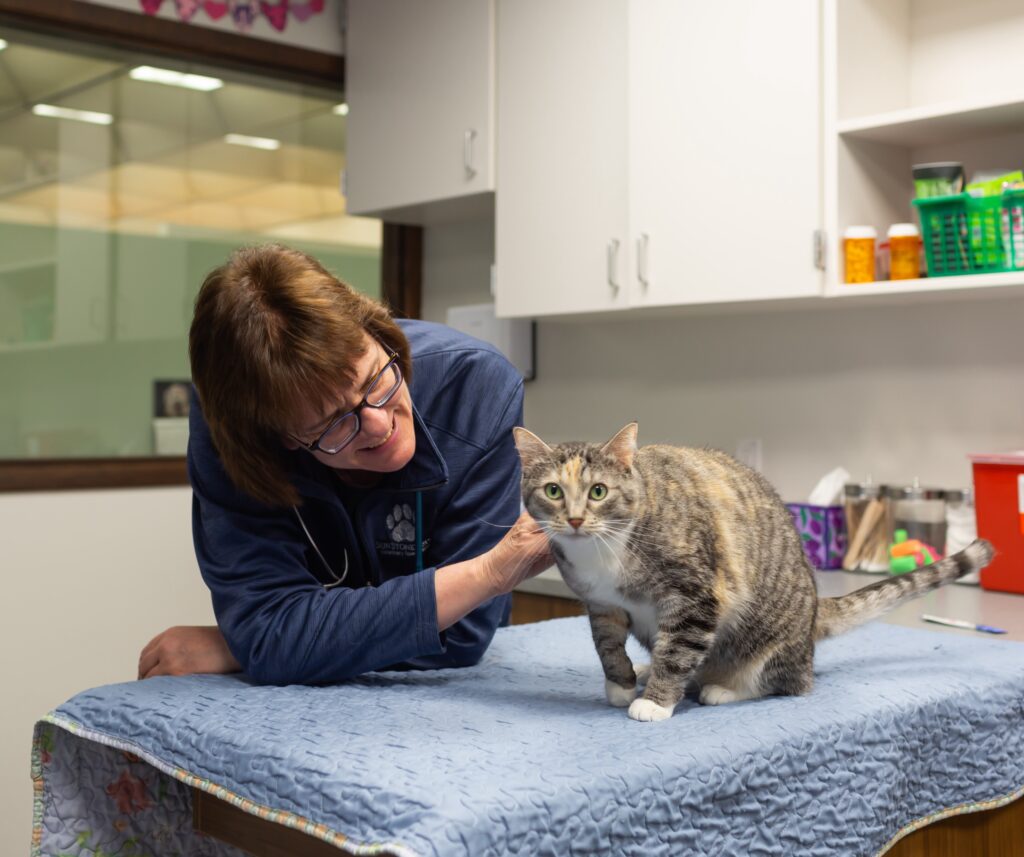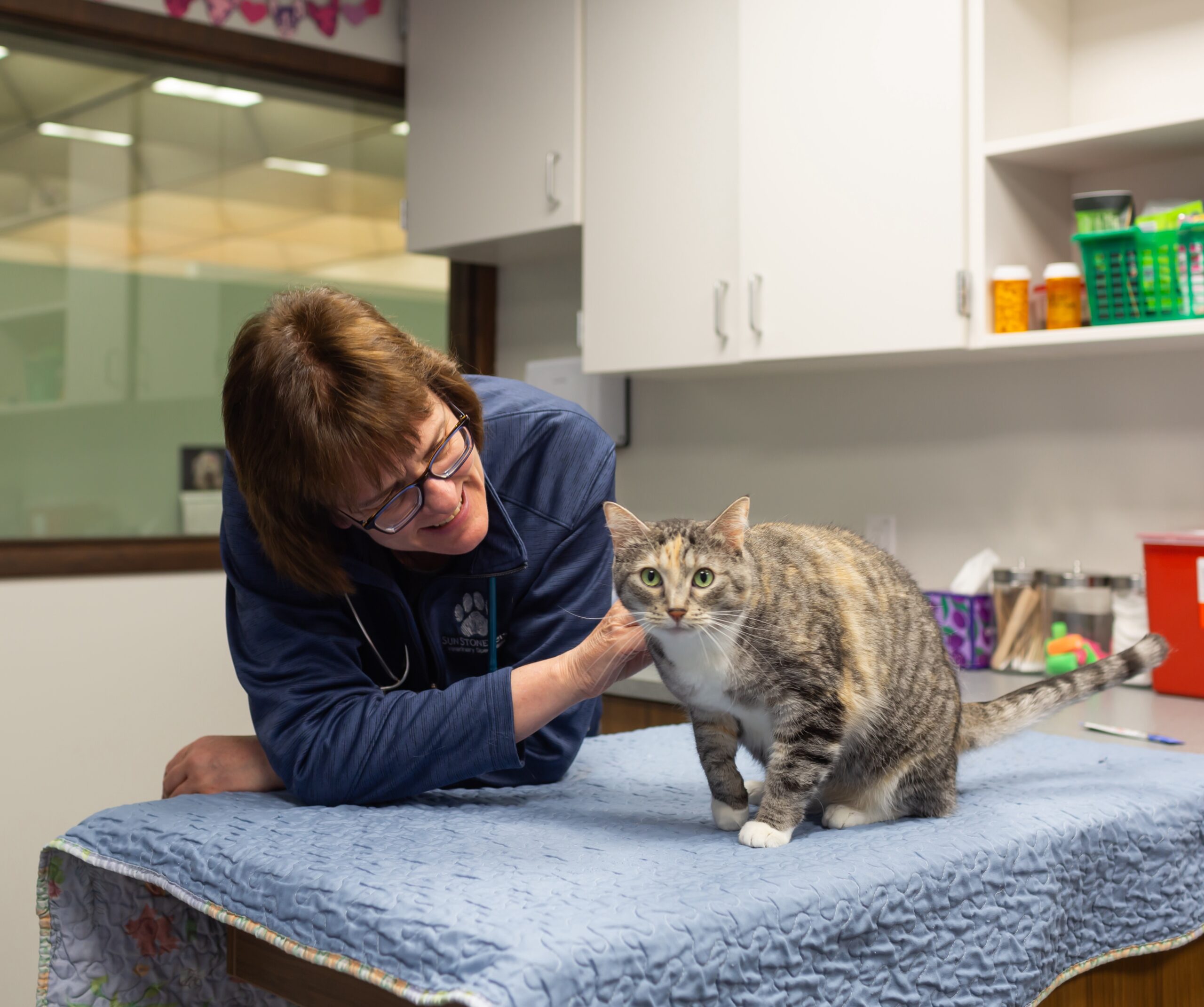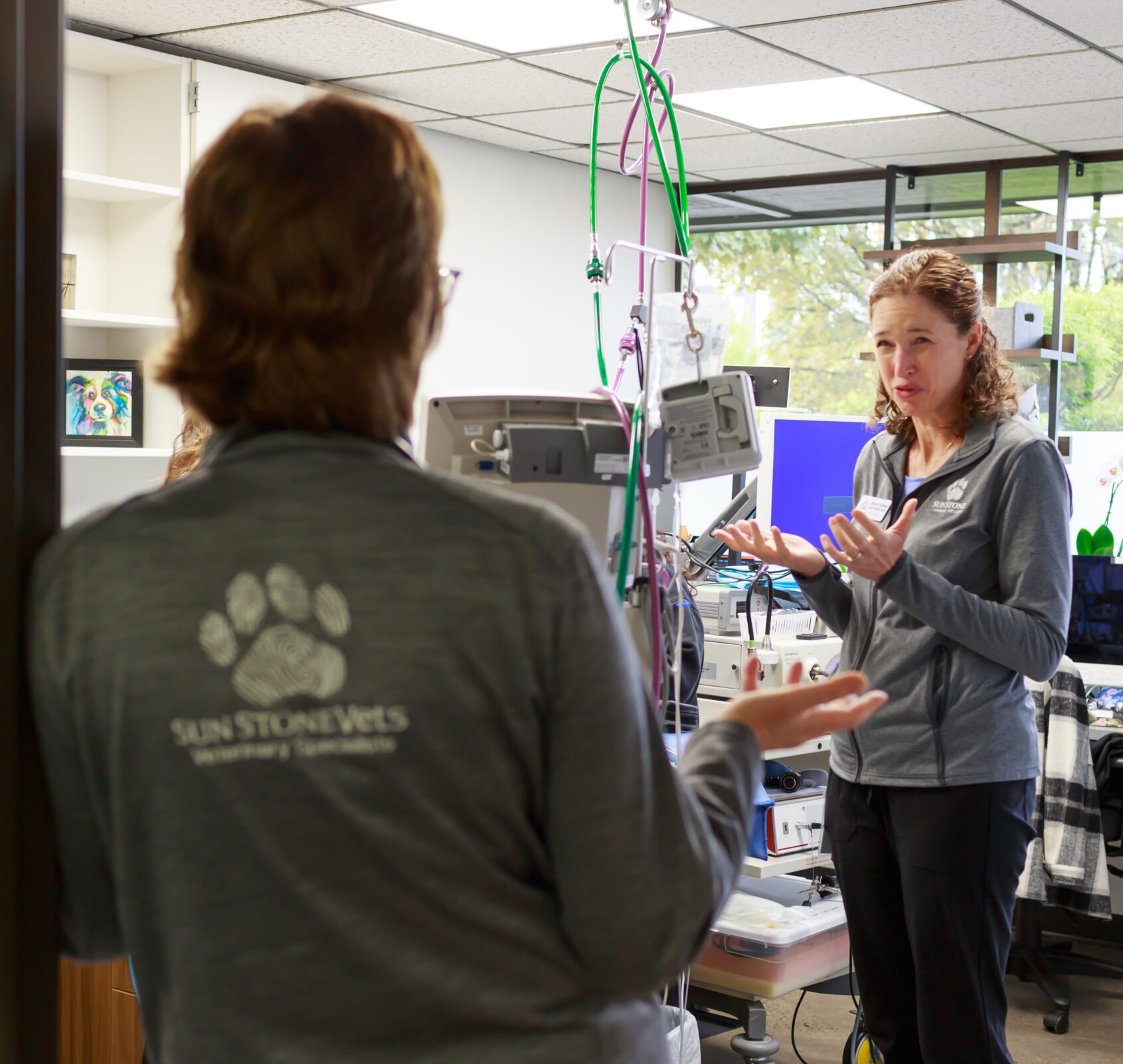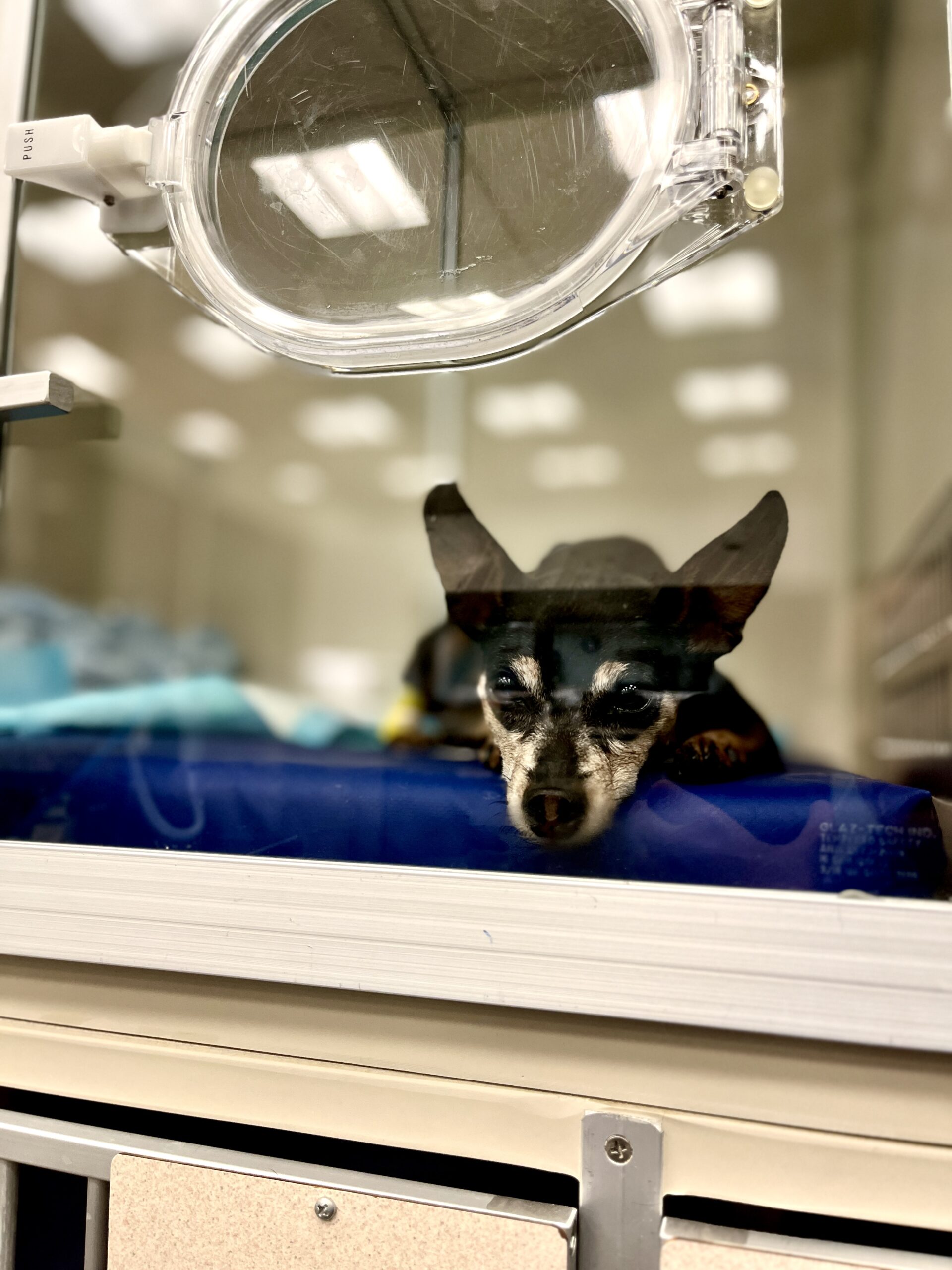What Is Small Cell Lymphoma in Cats?
Small cell lymphoma in cats is a slow-growing cancer that most often affects the intestines. It is a cancer of the lymphocytes, which are white blood cells that help fight infections. Unlike large cell lymphoma, which spreads quickly and needs more aggressive chemotherapy, small cell lymphoma grows slowly and usually stays in the GI tract.
Because it tends to remain in one area and responds well to treatment, many cats live for years after diagnosis. However, a confirmed diagnosis usually requires biopsies of the intestines, either by surgery or endoscopy. At Sunstone, we discuss with each pet parent whether pursuing a biopsy is the right choice, depending on the cat’s age, comfort, and other health concerns.
How Is Small Cell Lymphoma Different from IBD?
Small cell lymphoma and inflammatory bowel disease (IBD) can look nearly identical. Both cause vomiting, diarrhea, weight loss, and poor appetite. Even bloodwork and ultrasound may not tell them apart. The only way to truly know which disease is present is through a biopsy with microscopic evaluation (histopathology).
In some cases, when a biopsy is not an option, we may treat presumptively for small cell lymphoma or IBD based on symptoms. The response to treatment can help guide our care, even without a firm diagnosis. This is especially helpful for cats who are older or who may not tolerate anesthesia.
How Do We Treat Small Cell Lymphoma in Cats?
Treatment for small cell lymphoma is medical, not surgical. The most common and effective therapy is a combination of:
- Prednisolone: a steroid that helps reduce inflammation and kill cancer cells
- Chlorambucil: an oral chemotherapy pill given at home, usually every 2 weeks
Both medications are generally well tolerated by cats. Most pets don’t act sick while on treatment, and many return to a normal appetite and activity level.
We carefully monitor bloodwork on a careful schedule at first to watch for side effects, especially bone marrow suppression, which can affect white blood cells and platelets.
What Are the Side Effects of Chlorambucil?
Chlorambucil is a chemotherapy drug, but it is considered mild compared to other cancer treatments. Still, it must be used carefully.
Common side effects may include:
- Mild decrease in appetite
- Low energy
- Vomiting (rare)
- Bone marrow suppression
To avoid serious complications, we recommend routine complete blood counts (CBCs) to check for any drop in white cells or platelets. If side effects do occur, we may adjust the dose or pause treatment.
At Sunstone, our internal medicine team carefully tracks each patient’s response and makes adjustments when needed to keep your cat safe and comfortable.
Can Small Cell Lymphoma in Cats Be Cured?
There is no cure for small cell lymphoma, but we can often manage it very well. Many cats go into remission—meaning the cancer is no longer active—and live happy lives for 1 to 3+ years. Some cats even do well on low-dose maintenance treatment for much longer.
Every cat responds differently. Some may need long-term medication, while others can eventually taper off. Unfortunately, a small percentage of cats do not respond well to treatment, and their disease progresses despite therapy. We can’t predict this ahead of time, but we work closely with families to monitor how each cat is doing.
When Do We Refer to an Oncologist?
At Sunstone, our internal medicine service manages small cell lymphoma cases. However, if a cat has large cell lymphoma—a faster-growing and more aggressive form—we will refer to a veterinary oncologist for specialized chemotherapy.
Signs that a cat may have large cell lymphoma include:
- Rapid weight loss
- Severe or sudden GI signs
- Abnormal lymph nodes on exam or ultrasound
- Cytology (needle sample) that suggests high-grade lymphoma
Our role is to guide families through diagnosis and treatment, and to refer to oncology when a more aggressive approach is needed.
What Happens If We Don’t Treat?
Without treatment, small cell lymphoma can lead to:
- Ongoing vomiting or diarrhea
- Severe weight loss
- Nutritional deficiencies
- Dehydration
- Poor quality of life
Steroids alone may help for a short time, but symptoms often return. Treatment with prednisolone and chlorambucil offers the best chance at improving and maintaining your cat’s comfort for months to years.
Supportive Care and Quality of Life
Some cats don’t tolerate treatment well, or they have other health problems that make chemotherapy unsafe. In those cases, we may shift to a palliative approach—focusing on comfort, not remission. This could include:
- Appetite stimulants
- Antinausea medications
- Short-term steroids
- Diet changes
We understand that each cat is unique, and we help you choose a care plan that fits your goals and values.
We’re Here to Help
At Sunstone Veterinary Specialists, our internal medicine team is here to support you and your cat through every stage—from diagnosis to treatment to monitoring. If your cat is experiencing chronic vomiting, diarrhea, or weight loss, small cell lymphoma may be a possibility
Let’s work together to find answers, plan treatment, and support the best possible quality of life for your feline family member.






